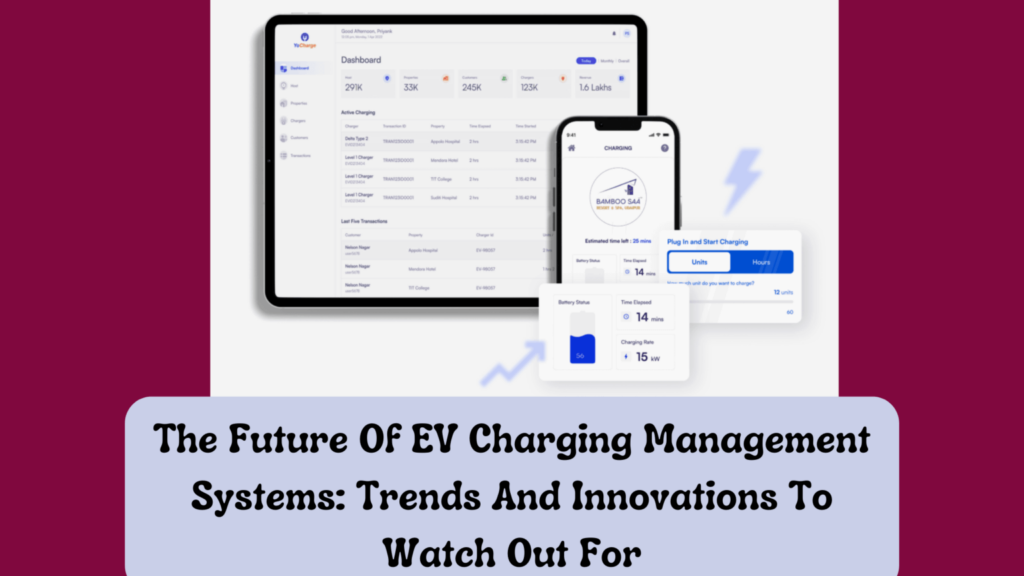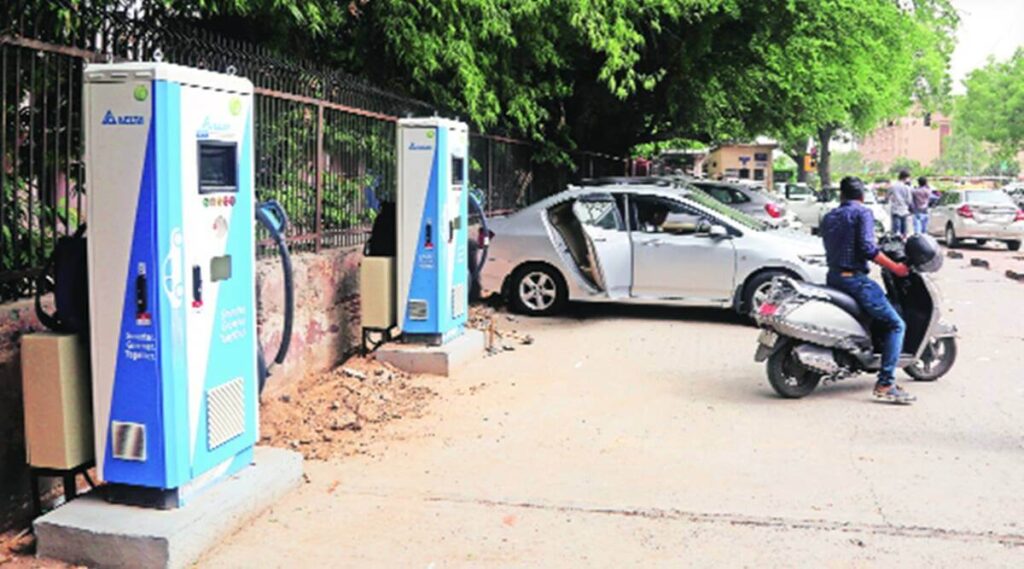
As more people are choosing electric vehicles (EVs), there is a greater need for reliable charging infrastructure. That’s where EV Charging Management Systems (EVCMS) come in. These systems play a vital role in making charging operations efficient, and convenient for users, and promoting sustainable transportation. They allow us to monitor, control, and manage EV charging stations, providing a smooth and hassle-free experience for EV owners. In this article, we’ll discuss the latest trends and innovations that are shaping the future of EV Charging Management Systems.
How EV Charging Systems Can Help with 5 Innovative Use Cases?
EV Charging Management Systems are revolutionizing the way we charge our electric vehicles. Here are five innovative use cases that demonstrate their capabilities:
- Wireless EV Charging Systems: Wireless charging eliminates physical connections between EVs and charging stations, allowing for seamless charging by parking the vehicle over a charging pad. This innovative solution enhances user convenience and minimizes cable and plug clutter.
- Solar-Powered EV Chargers: Integrating solar panels into EV charging stations allows them to generate clean energy to power electric vehicles. This not only reduces dependence on the grid but also promotes the use of renewable energy sources, making EV charging more sustainable.
- Smart Home EV Charger: Connecting an EV charger to the home’s smart grid enables intelligent energy management. Users can schedule charging during off-peak hours when electricity prices are lower, maximizing cost savings and reducing strain on the electrical grid.
- Solar-Assisted EV Charger: Solar-assisted EV chargers combine solar power and grid electricity to charge electric vehicles. They use solar energy during the day and switch to the grid when there’s not enough sunlight. This hybrid system boosts charging efficiency and reduces carbon emissions, making it an environmentally friendly solution.
- V2G (Vehicle-to-Grid) Technology: EV charging station management systems enable bidirectional power flow, allowing electric vehicles to draw energy from and feed excess energy back into the grid. V2G technology stabilizes the grid, integrates renewable energy sources, and optimizes energy distribution.

EV Charging Management Systems as a Powerful Tool for Creating Sustainable Cities
By integrating EV Charging Management Systems into urban planning and development, cities can accomplish the following and move closer to their vision of sustainable cities:
- Smart City Technology Integration: Integrating EV charging infrastructure into smart city networks enables real-time data collection, remote monitoring, and advanced analytics. This integration improves charging station usage, enhances energy distribution, and boosts traffic management capabilities.
- Promoting Sustainable Energy Sources for Cities: EV Charging Management Systems have the ability to harness renewable energy sources, such as solar and wind power, to charge electric vehicles. By doing so, these systems reduce dependence on fossil fuels and assist cities in transitioning towards greener and more sustainable energy solutions.
- Collaborative Charging Networks: EV Charging Management Systems make it possible for EV owners to share charging resources and infrastructure, creating collaborative charging networks. This allows for the efficient use of charging stations, reduces infrastructure costs, and encourages sustainable practices driven by the community.
- Urban Planning and Development: EV charging infrastructure can be strategically deployed to support urban development plans, ensuring electric vehicle owners have convenient access to charging stations. This promotes EV adoption, reduces air pollution, and creates a cleaner and healthier urban environment.
The Latest Trends & Innovations in EV Charging Technology
The EV charging landscape is evolving rapidly, with new trends and innovations constantly emerging. Here are some notable advancements to watch out for:
- Mobile App for Electric Vehicles: Mobile apps for EV owners provide real-time information on nearby charging stations, including availability, pricing, and charging status. They also offer features like remote charging activation and easy payment integration, making EV charging more user-friendly.
- Blockchain Technology in Transportation: Blockchain technology is great for managing EV charging because it ensures safe and transparent transactions. It lets users securely verify their identities, give permissions, and pay for charging services. It also enables people to trade energy directly with each other and manage energy in a decentralized way.
- Predictive Analytics in Smart Cities: Advanced analytics and AI enhance the efficiency of EV charging operations by analyzing data on energy demand, user behavior, and grid conditions. This optimization includes predictive charging, load balancing, and dynamic pricing, which results in effective energy utilization and cost efficiency.
- Fleet Management Systems: As the adoption of electric fleets increases, EV fleet management systems are becoming essential for efficient operations. These systems enable fleet operators to monitor their electric vehicle’s charging status, location, and performance in real-time. They also provide insights on energy consumption, maintenance needs, and optimal charging schedules, improving fleet efficiency and reducing operational costs.

Conclusion:
EV Charging Management Systems are leading the way in revolutionizing the charging process for electric vehicles. Advancements like wireless charging, solar integration, and smart city integration are propelling sustainable transportation and creating greener, smarter cities.



